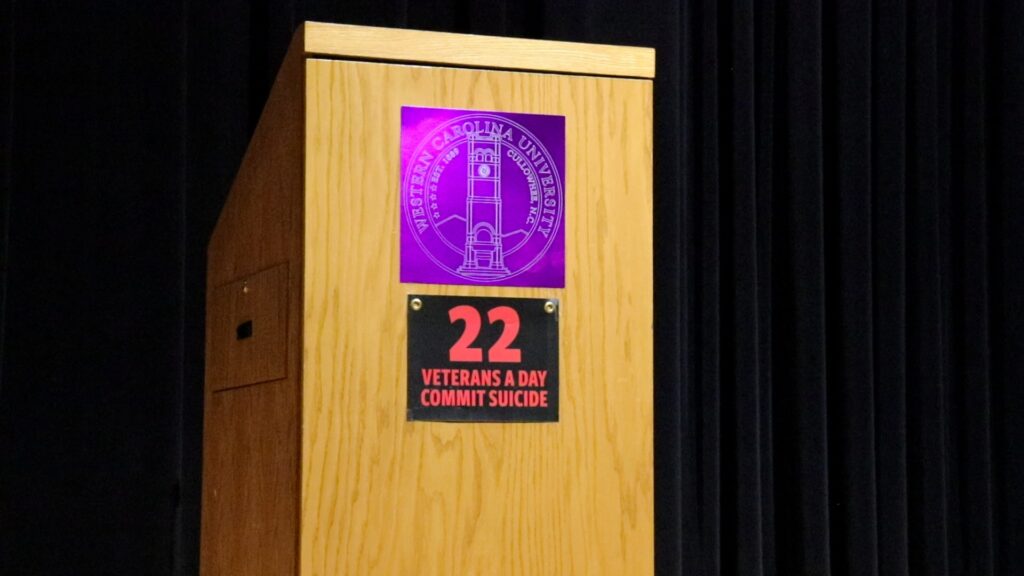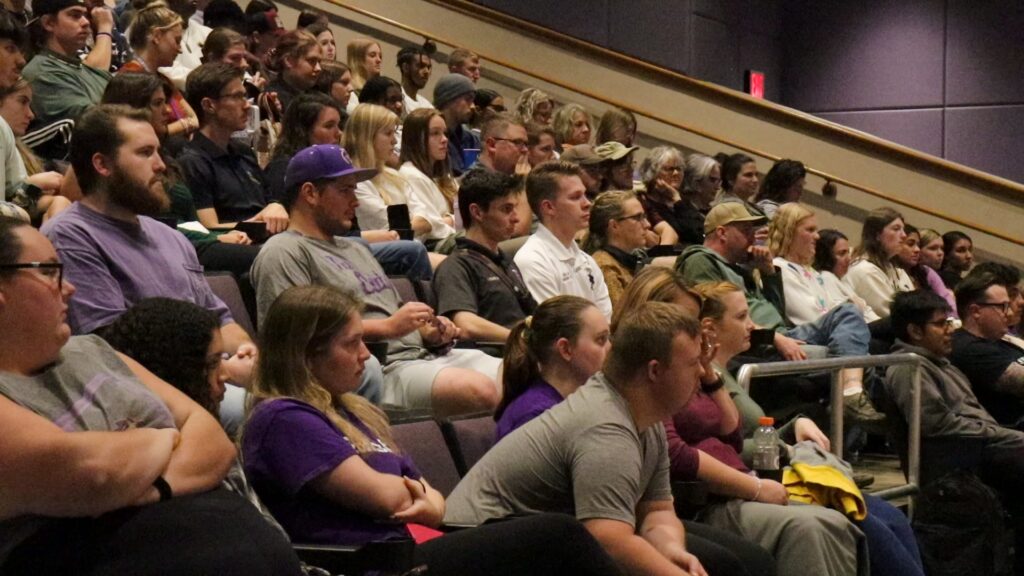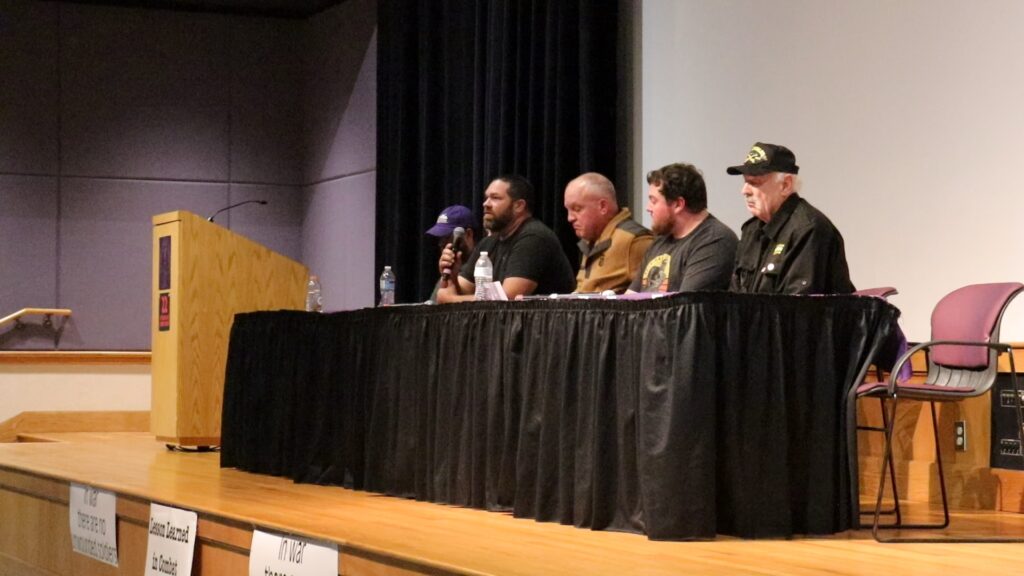Story co-produced with Ryan Mullis
Story updated on 11.28.23

For most people in America, war is what we see in movies, video games, or on the news. We take for granted the bliss of never seeing the unprecedented horrors of combat. War comes with an invaluable loss of life and leaves deep wounds on the bodies and minds of its survivors.
See the video story
The Jackson County Veterans Organization hosted Unseen Scars, an event dedicated to recognizing this harsh truth, on Nov. 8 at the UC Theater. A panel of six veterans shared their experience in the military and how post-traumatic stress disorder has impacted their lives. The events received a strong attendance, with students nearly filling 170 of the theater’s seats.
President of the Jackson County Veterans Organization, Tom Baker said, “We created Unseen Scars 12 years ago to kind of give the students an idea of what their mom, dad, brother, or sister may have gone through when they were in the military.” The JCVO supports young veterans by connecting them with mental health resources and support groups.
The panel included WCU staff members Tom Baker, Steve Owens, Kristian Hooker, and the President of the WCU Student Veterans Association, Austin Summers. The other two veterans requested their names be excluded. Baker was deployed to Vietnam in 1968, serving as an airborne infantryman. Owens joined the army in 1982 and flew aircraft in Kosovo, Afghanistan, and Africa. Hooker served in the Army and was deployed to Afghanistan as a torrent gunner in 2012. Summers joined the Army in 2017 and served as a mechanic in Afghanistan.
As each veteran shared their unique account of the military and their deployment, a common theme of loss and guilt was revealed. They described the trauma of suddenly losing someone who had a full life ahead of them. As the panel delved into the disorienting circumstances of sudden loss, they told how trauma doesn’t go away and how losses are never truly filled.
The enduring trauma of losing a fellow serviceperson leaves many veterans with survivor’s guilt. Make The Connection, an organization that connects veterans experiencing mental health struggles with veterans with whom they can relate, defines survivor’s guilt as the feeling of remorse for having survived an event that others did not. Those who suffer from survivor’s guilt question why they deserved to live or if they could have done something differently to prevent the tragedy.
The Department of Veterans Affairs reported that 23% of veterans using the VA were diagnosed with lifelong PTSD, and 7% of veterans not using the VA. The discrepancy between veterans who seek counseling through the VA or outside means suggests that more may be affected by the condition but have not received a formal diagnosis.
A study by BioMedical Central Psychiatry found that 20% of veterans are affected by depression, 11% of veterans experience suicidal ideation, and veterans who use drugs or alcohol are more likely to undergo suicidal ideation. According to Stop Soldier Suicide, veterans are 57% more likely to die of suicide than civilians, making suicide the second leading cause of death among service members.
After each veteran shared their story, the panel opened up for questions from family members of veterans and student servicepersons. The panel shared the potential for counseling to help those who experienced trauma to process their grief in constructive ways. Additionally, they spoke on how a community of veterans like the VSA allowed them to connect with people they could relate to. The panel emphasized to veterans that there is joy in life after war and that they can start by finding a reason to wake up each morning.
WCU offers several services to aid students in the military. WCU Counseling and Psychological Services provides all students with affordable mental health treatment options. The WCU Student Veterans Association is a strong community of student veterans that strives to improve its members’ college experience. The WCU Military Student Services is dedicated to providing student veterans with assistance to maximize their educational benefits and balance school requirements with military obligations.




